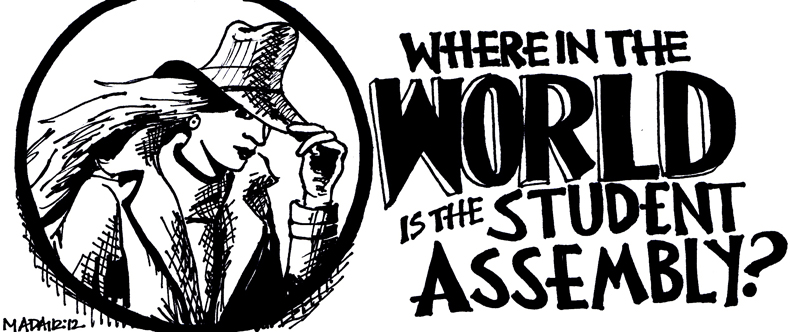One of the unavoidable facts about being part of a campus organization — or any organization, for that matter — is that each group comes to be associated with certain stereotypes or common behaviors. In the case of the Student Assembly at the College of William and Mary, the senate has enjoyed a generally positive reputation, but one periodically tainted by a perceived lack of involvement or interest. The perception of the SA as an inactive and ineffective body has been recently reaffirmed by a series of actions and behaviors within all three branches of the assembly.
This past week, Chairman of the Senate Noah Kim ’13 admonished his fellow senators for a lack of dedication, asking them to take their roles as student ambassadors more seriously, specifically calling attention to senators who arrived late — or not at all.
While we might disagree with Kim’s method of publicly calling out members of the SA, we certainly agree with his message. The role and responsibilities of the SA are extensive, and if all members of the SA take active roles, the senate can act as a great source of positive change within the College.
Instead, it appears that interest in the SA has waned considerably, as reflected by the number of students wishing to run for SA office and the behavior of those who currently hold office. For years, we have heard campaigns centered on changing the culture of the SA. Some members of the SA, Kim included, certainly appear to take their roles seriously and appear ready to participate actively in one of our campus’s most influential student organizations. Students who run for the SA are making a promise to the student body to work to improve student life at the College, and those who fail to try to do so are doing a great disservice to the students who elected them. Unfortunately, as long as the vast majority of seats in the SA meetings are empty, the vicious cycle of inactivity will continue.
Another issue that has plagued the SA over the years is the amount of resignation. Such resignations exemplify a lack of commitment on the part of the SA. While SA officials may have very legitimate reasons for resigning, we still believe that the key to halting the cycle of inactivity is to ensure the SA has stable, committed and strongly motivated leadership. If senators and class officers are simply there to pad their resumes, and if they do not actively participate in their roles, the high turnover rate will continue to be a major problem for the organization.
We want to see results and a change in how SA members are acting. It’s the final push for senior leadership to make an actual difference in this school. Remember why you wanted to be a part of the SA, and if you ran to put a leadership role on your resume, find something other than a position is built upon the trust of your fellow students. All it takes is one group of young, determined senators to change the culture of an organization. We certainly hope the new semester brings a less lethargic attitude to one of the College’s premier student organizations.




































